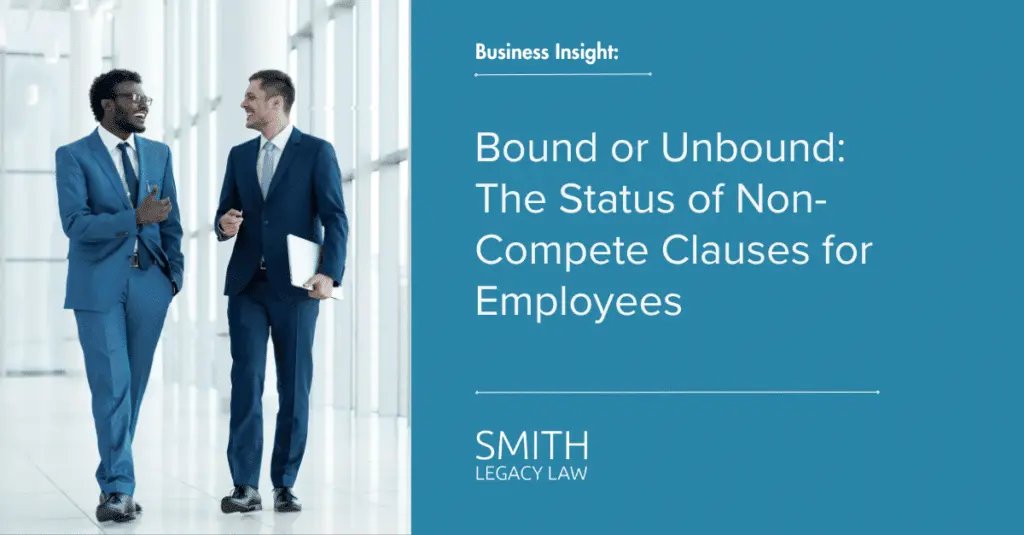The U.S. Federal Trade Commission (FTC) recently announced the adoption of regulations barring the use of non-compete clauses in employment relationships. This regulation, expected to go into effect this summer, would effectively void all employer-imposed restrictions on the types of work that former employees could accept. The new ban is not without controversy and is already the subject of a federal lawsuit in Texas.
What Is a Non-Compete Clause
A non-compete agreement or clause is a type of contract entered into between an employer and employee that restricts who and perhaps where an employee can work once he or she has terminated his or her employment. A major purpose of this type of contract is to prevent an employee from leaving one employer and then going to work for a competitor. Ostensibly, this type of contract protects trade secrets or other proprietary information, or may even bar an employee from establishing a competing business. Such clauses are already prohibited in several states yet the vast majority of states permit some degree of control over a former employee’s new employment.
Who Is Impacted by the Regulation?
Under this new regulation, any existing or new restriction with respect to an employee’s future employment by a new employer will be prohibited. Employers cannot limit who an employee may work for, where he or she may work, and the type of work that the employee may perform after the conclusion of their employment. Employees are expressly covered, as are certain independent contractors. However, there is an exception. Existing non-competes with certain senior executives will remain in effect, but new ones are prohibited. (I added this from an article)
Notably, individuals owning greater than 25% of a business that is being sold may legally agree to post-sale employment restrictions.
Why Is the Regulation Being Challenged in Court?
A federal lawsuit filed in Texas by the US Chamber of Commerce and other business-oriented organizations is seeking to enjoin this regulation. One of the bases for this lawsuit is that the FTC has exceeded its authority. The FTC was created to regulate trade between business entities and prevent the creation of business monopolies and bar unfair methods of competition.
The FTC claims that it has the jurisdiction to regulate certain employment practices like non-competes because of the negative impact on business competition which needs skilled labor. On the other hand, states have traditionally regulated the nature and scope of relations between employers and employees. Whether a particular non-compete agreement is proper as between an employer and employee has been looked at as an issue for state legislatures and courts.
It’s unclear how this issue will be decided and when.
What Steps Should Employers Take Now?
If an employer wants to protect proprietary technology, client lists, or its existing workforce, other mechanisms exist. Non-disclosure agreements and non-solicitation agreements are not impacted by this new regulation and are widely supported by courts throughout the United States.
Our firm will be monitoring developments in this area and working with clients to discuss strategies to help protect their business interests and ensure they comply with all legal obligations. Contact us to discuss your business needs.
